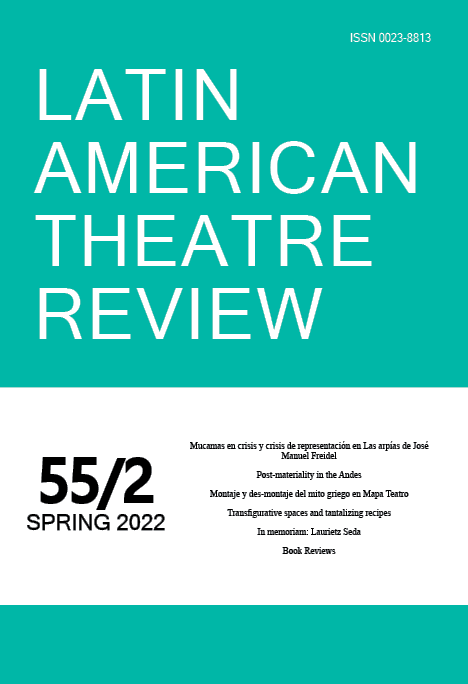Abstract
This essay analyzes Mapa Teatro’s rewritings of Greek myth in Colombia: Orestea ex machina (1995), on the story of the House of Atreus, and C’úndua (2000-2005), on Prometheus. The Oresteia combines Aeschylus’s tragedy with the country’s violent policies. In the C’úndua cycle, meanwhile, the myth of the philanthropic titan fuses with the stories of the inhabitants of the El Cartucho neighborhood, which is demolished in the name of urban “renewal” in the center of Bogotá. Both rewritings are based on a radical deconstruction of Greek tragedy, and both are marked by the presence of reality and the connection with politics. In their reinterpretation of the myth, the prestigious company is draws freely from the dramaturgy of Heiner Müller and his transgressive aesthetic of fragmentation. Intertwining Greek myth with the tragedy of the present, Mapa Teatro enacts the social and political trauma caused by the propagation of violence in the Colombian context. This paper is based on an interdisciplinary theatrical perspective, posing intersecting theories on performance, anthropology, politics and trauma studies.
All items © The Center of Latin American Studies and Caribbean Studies, The University of Kansas, Lawrence, Kansas 66045, U.S.A. Authors: If you prefer to remove your text(s) from this database please contact Dr. Stuart A. Day (day@ku.edu)
